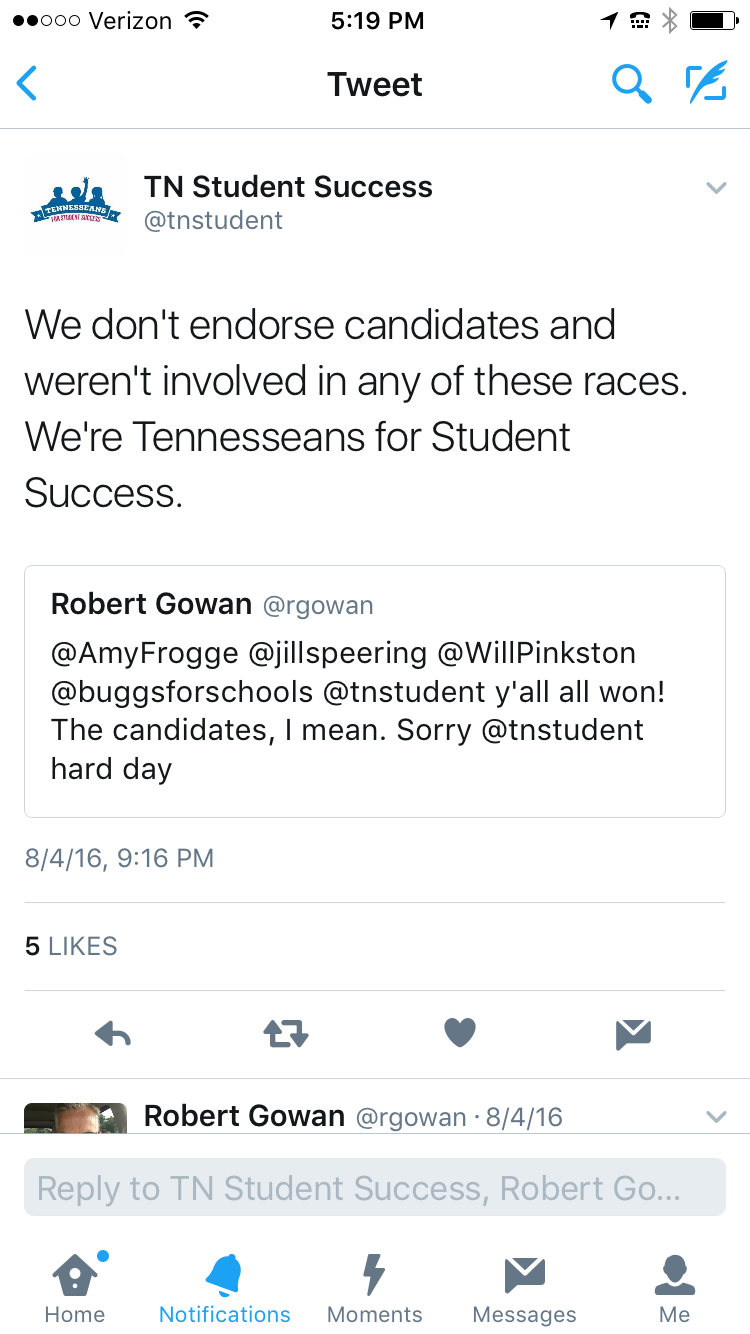For the past two years, Gov. Haslam has proposed and the General Assembly has adopted education budgets that included four percent increases in state appropriations for the instructional salary component of the BEP. That means Tennessee teachers have received four percent raises in back-to-back years, right?
Wrong.
Instead, some teachers have seen no raise at all or very small salary increases while the average has hovered in the 2-2.5% range.
What’s going on?
I’ve attempted to explain this phenomenon here and here.
Those posts point to the State Board’s insistence on flexibility for local districts as a part of the equation. And, to be sure, the State Board’s refusal to adjust the state salary schedule by the same percentage as the salary appropriation does play a role.
But, there’s a bigger problem. The state is simply under-funding teaching positions through the BEP formula. I wrote about the Comptroller’s Office of Research and Education Accountability (OREA) study and pointed to a $400 million difference between the BEP-generated allocation of teaching positions and the actual number of teachers hired by local school systems. Since then, OREA has been informed by the Department of Education that some of those positions not funded by the state are entirely funded by federal dollars. The revised estimate, then, is that school districts in Tennessee are paying for between 12-18% of their teaching positions exclusively through local funds.
Yes, local districts are hiring between 12-18% more teachers than the state pays for through the BEP. Imagine your school district with a teaching force reduced by an average of 15%. Could your schools function? Would students be well-served?
Since districts are responsible for 100% of the cost of any teacher hired beyond the BEP, they must make their available salary dollars stretch. So, when a district receives a 4% increase in salary funds, those funds are spread out among both the BEP-generated teachers and another 15% of teachers the district requires but which are not paid for at all by the state.
Stretching those dollars turns a 4% salary component increase into a raise of around 2% for most teachers. Some districts use 100% of their BEP salary allocation increase to hire new teachers, which means existing staff get no raise at all.
Fortunately, Governor Haslam just held budget hearings and Commissioner of Education Candice McQueen presented her proposed budget, including a recommended increase in the BEP. In fact, the issue of salary is discussed during the hearing when Finance Commissioner Larry Martin brings up BEP components. You can watch that discussion at around the 38 minute mark here.
Unfortunately, McQueen is not proposing a solution to the BEP funding problem.
Grace Tatter reports:
Earlier in the day, Commissioner Candice McQueen asked for a 1.4 percent increase in education spending next school year, mostly to accommodate a projected 1.8 percent increase in student enrollment statewide, a driving component of the state’s school spending formula, called the Basic Education Program, or BEP.
In addition to wanting $58 million more for the BEP, McQueen asked for an extra $4.4 million for the state’s Read to Be Ready literacy initiative; $379,000 more on educator preparation programs; and $2 million to train teachers on new standards for science and the fine arts. She also is requesting $28.9 million for rural education programs.
It’s nice to see normal growth funded through the BEP, but districts will need a lot more than their share of $58 million to make up for the teacher funding shortfall under the current formula.
An increase of teaching positions of 15% through the BEP formula would cost $367 million. That’s without a salary increase. Of course, our state ended last year with a surplus of over $900 million and is starting this year with revenue coming in well over projections.
Here’s what Governor Haslam has to say about that:
Haslam said the increase would be substantial, although not as much as the state could afford with its considerable surplus. That’s because any pay hike must be sustainable in lean years, he said.
“We will continue to invest in education whenever we can, but we would like to be thoughtful,” Haslam told reporters after hearings on the budget for 2017-18.
If Haslam and the DOE were actually being thoughtful, they’d propose adjusting the BEP formula in a way that provides personnel funding that matches school system needs. Instead, teachers can likely expect that whatever raise is proposed and adopted will be cut in half as a result of the inadequacy of the BEP.
As for those “lean years,” we’re now in our third consecutive year of very significant surpluses. Investing 50% or so of last year’s surplus could beef up the BEP formula and still leave half a billion for other priorities or the rainy day fund.
The BEP is broken. A state experiencing significant budget surpluses should be able to fix it. What’s missing?
For more on education politics and policy in Tennessee, follow @TNEdReport
